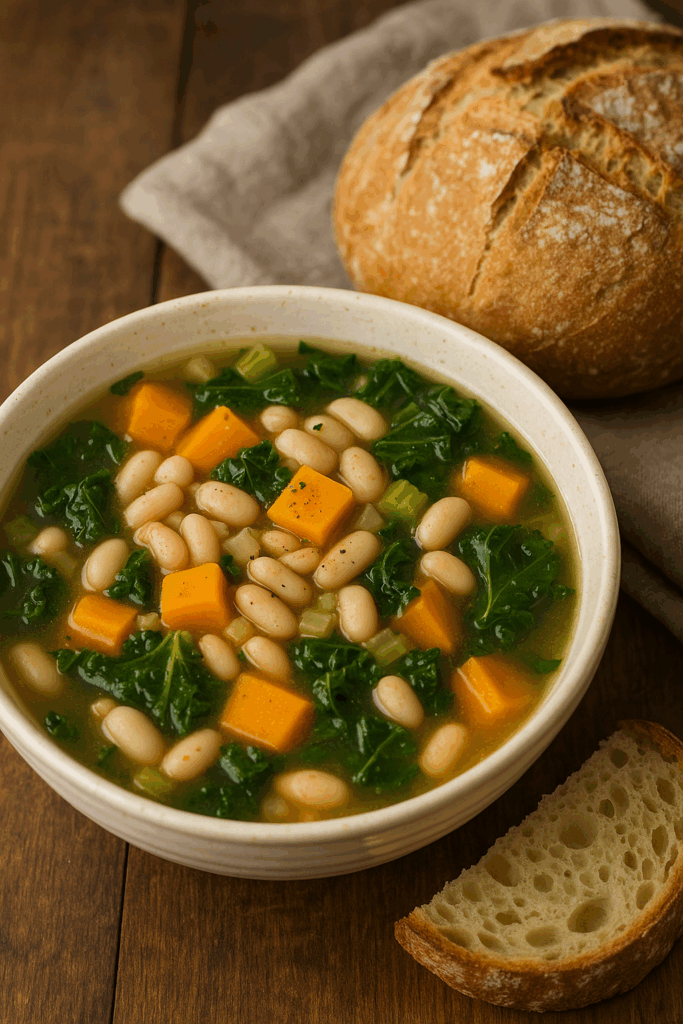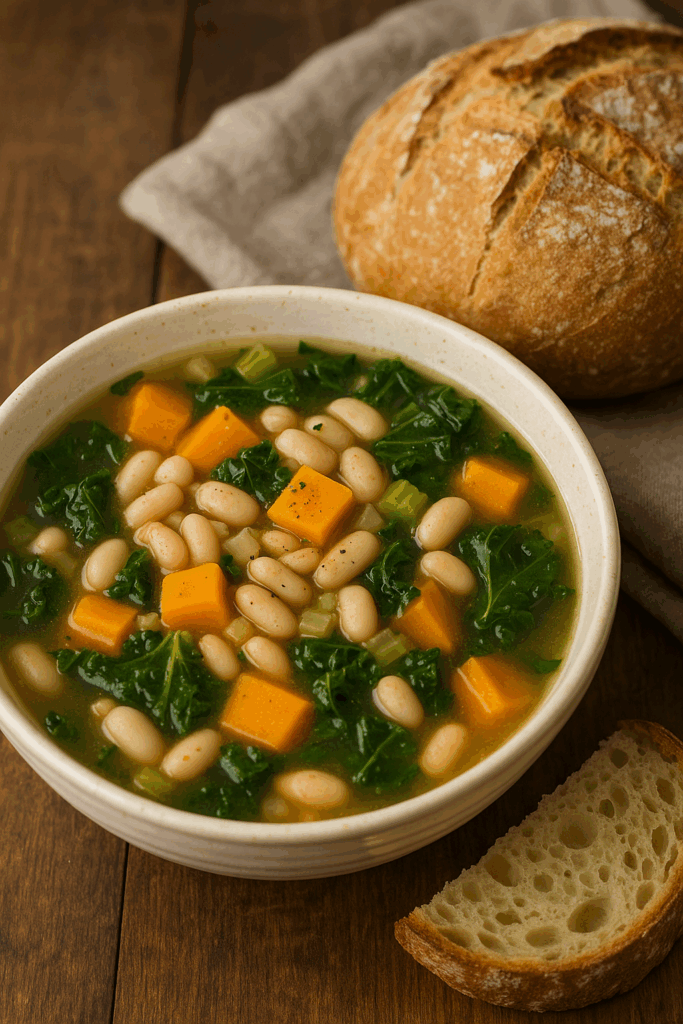Healing Starts from the Inside Out
At Restore First Health, we know advanced wound care is not just about bedside treatments. It is about supporting the whole patient. Nutrition, rest, and lifestyle choices play a big role in wound healing, inflammation reduction, and lymphatic health.
We have already shared how sleep quality directly impacts wound healing and how nutrition and hydration help patients heal faster.
This fall, we are adding a practical piece you can try at home: a White Bean, Sweet Potato and Collard Greens Soup paired with a quick 3-ingredient homemade bread.

White Bean, Sweet Potato and Collard Greens Soup
This hearty soup is packed with wound-healing nutrients:
- Beans provide protein and fiber to help repair tissue and support circulation.
- Sweet potatoes are rich in Vitamin A, which supports immune function and skin health.
- Collard greens are full of Vitamin C, essential for collagen production and wound closure.
- Garlic offers natural anti-inflammatory and antimicrobial benefits.
Ingredients:
- 4 cups vegetable broth
- 2 cups sweet potatoes (fresh or frozen)
- 2 cups collard greens (fresh or frozen)
- 2 cans white beans (cannellini), rinsed
- 1 onion, chopped
- 3 celery stalks, chopped
- 6 cloves garlic, minced
- 2 tbsp lemon juice
- Salt, pepper, and garlic-herb seasoning to taste
Instructions:
- Add broth, sweet potatoes, beans, greens, onion, celery, garlic, and seasonings to a large pot.
- Bring to a boil, then simmer for 10 to 15 minutes until tender.
- Finish with lemon juice. Optional: swirl in cream and top with Parmesan.
Easy 3-Ingredient Bread
Warm, fresh bread is comforting and helps patients maintain appetite during healing. This version requires no kneading and only three pantry staples.
Ingredients:
- 3 cups all-purpose flour
- 2 tsp salt
- ½ tsp yeast
- 1 ½ cups warm water
Instructions:
- Mix flour, salt, and yeast. Add warm water and stir into a sticky dough.
- Cover and let rise 12 to 18 hours.
- Shape into a ball, bake in a preheated Dutch oven at 450°F for 30 minutes (covered), then 15 minutes uncovered.
Why These Recipes Can Support Healing
For patients with chronic wounds, diabetic ulcers, lymphedema, or recovering from acute conditions:
- Protein can help rebuild damaged tissue.
- Vitamin C and A support collagen formation and immune strength.
- Fiber supports healthy digestion and glucose control, important for wound care.
- Hydration-rich meals like soups help with lymphatic flow and swelling reduction.
This soup and bread combination is both comforting and functional, providing fall flavors while fueling recovery.
Learn More from Restore First Health
- How Sleep Impacts Wound Healing
- Nutrition Tips for Wound Care Patients
- Our Patient and Family Resources
At Restore First Health, we combine advanced mobile wound care with whole-body healing strategies. From technology at the bedside to nutrition and lifestyle support, our mission is to help you heal faster and live fuller.
